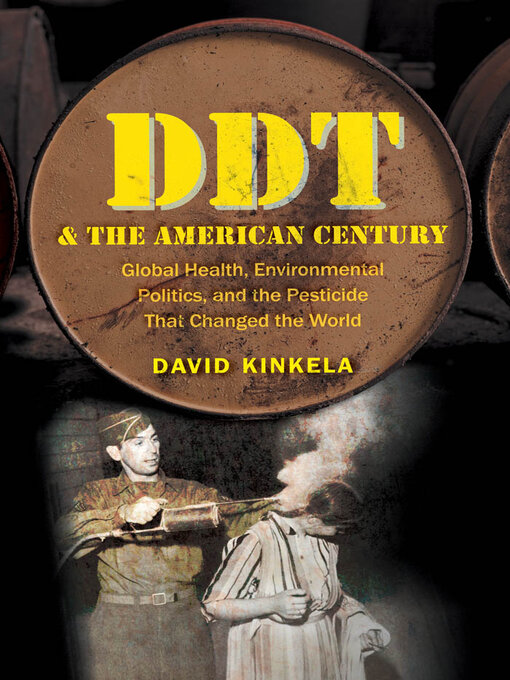- Fiction
- Nonfiction
- Biographies and Autobiographies
- Religion and Spirituality
- Politics
- Battle of the Books 2023
- RCCC Library Picks
- See all dogwood digital library's collections collections
DDT and the American Century
Global Health, Environmental Politics, and the Pesticide That Changed the World
-
Creators
-
Series
-
Publisher
-
Release date
August 1, 2013 -
Formats
-
Kindle Book
- ISBN: 9780807869307
-
OverDrive Read
- ISBN: 9781469602639
- File size: 2725 KB
-
EPUB ebook
- ISBN: 9781469602639
- File size: 2725 KB
-
-
Languages
- English
-
Reviews
-
Library Journal
November 1, 2011
Kinkela (history, SUNY at Fredonia) traces the global use of DDT since 1941, particularly in relation to malaria, and examines the pesticide's political and economic implications in this nuanced and accessible study of complicated issues of health and the environment. Rachel Carson is part of this story, including her early advocacy of what is now called integrated pest management. Problems with pesticide poisoning of agriculture workers and insect resistance to DDT preceded the 1972 ban on the use of DDT in the United States. Historic cartoons and photographs included here add insight to this highly politicized and contentious subject. VERDICT Readers interested in the environment, public health, and international relations will find this book particularly timely as the World Health Organization and the Gates Foundation renew efforts for malaria eradication more than 40 years after abandoning eradication as a goal in 1969. Kinkela's recognition that current tools and systems are insufficient for the task and his advocacy of a more integrated effort than past attempts make this book a relevant and useful addition.--Mary Chitty, Cambridge Healthtech Lib., Needham, MA
Copyright 2011 Library Journal, LLC Used with permission.
-
Loading
Why is availability limited?
×Availability can change throughout the month based on the library's budget. You can still place a hold on the title, and your hold will be automatically filled as soon as the title is available again.
The Kindle Book format for this title is not supported on:
×Read-along ebook
×The OverDrive Read format of this ebook has professional narration that plays while you read in your browser. Learn more here.

